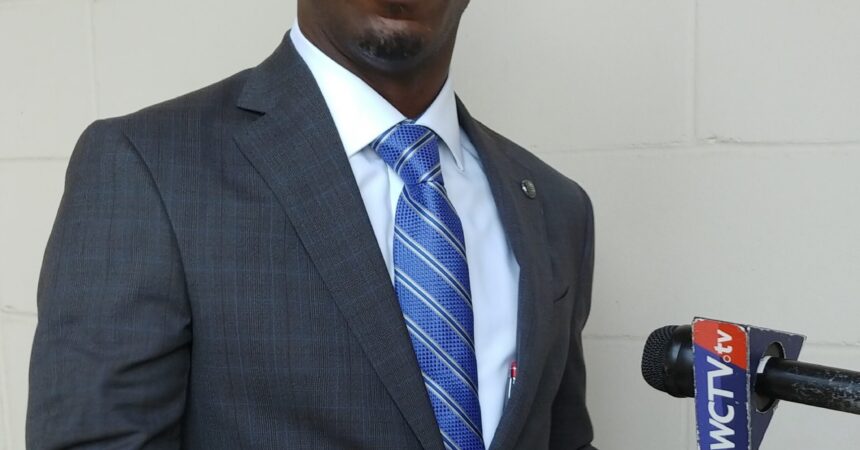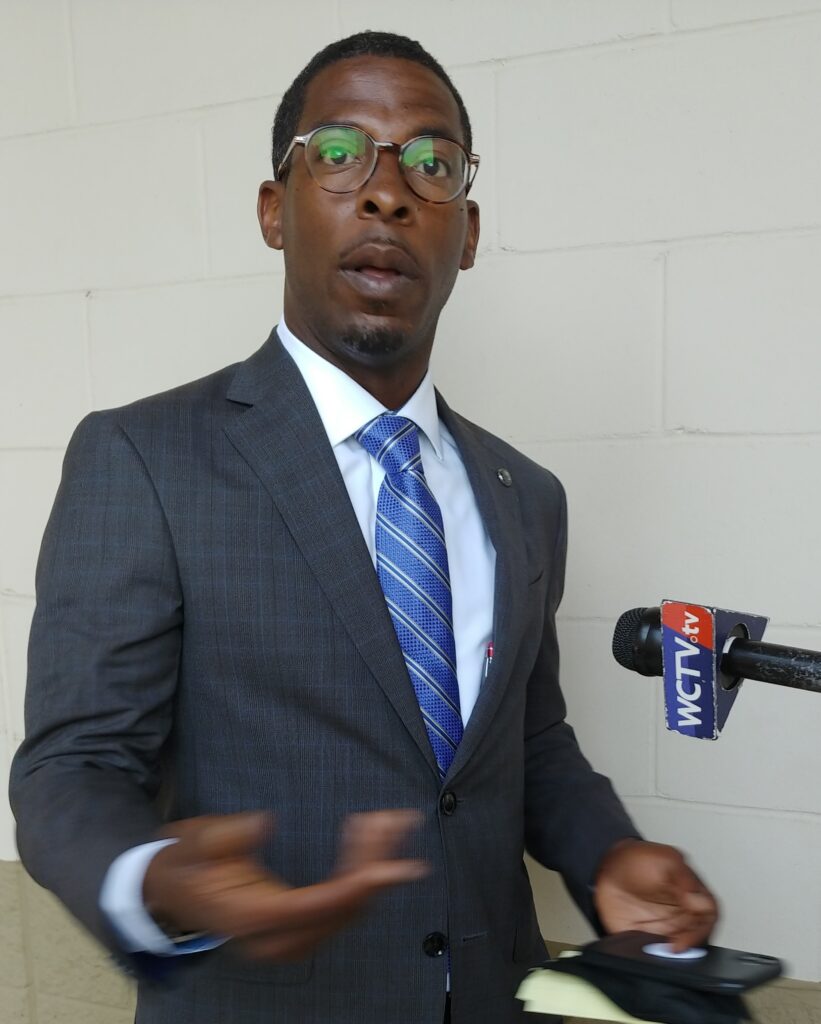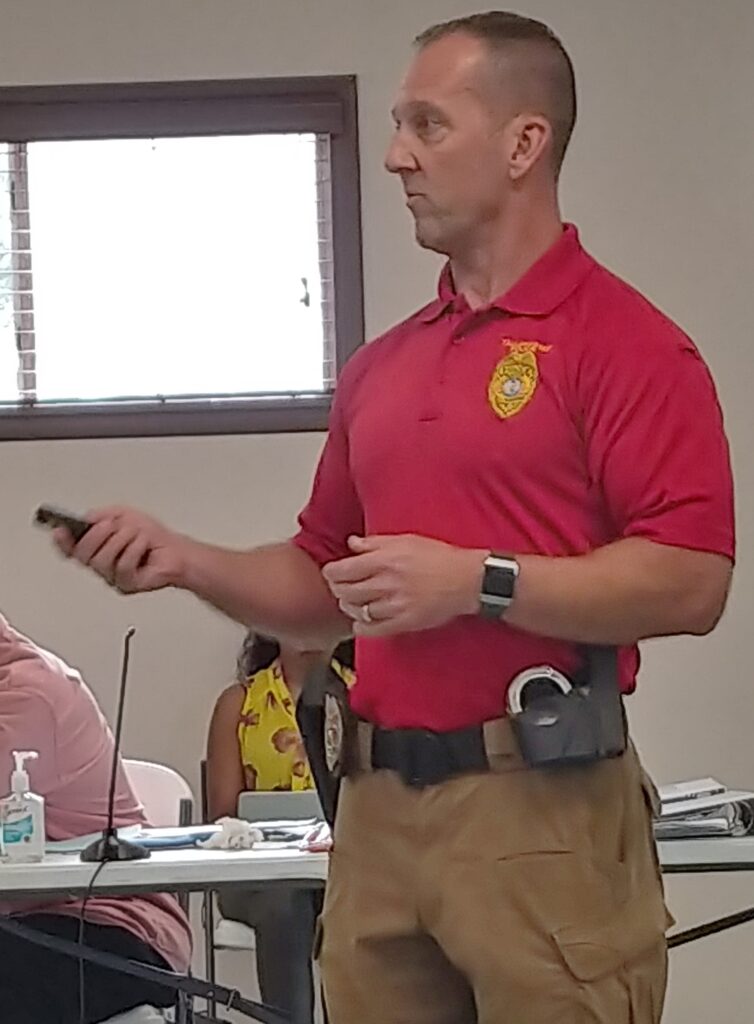
Citizen review board takes first look at TPD use of force


Photos by St. Clair Murraine

By St. Clair Murraine
Outlook staff writer
Whatever decision is reached on the use-of-force policy that TPD said was in line when Jacquez Kirkland was beaten with a baton during his arrest on a DUI charge, member of the community will have a say in it.
The scene of four TPD officers making the arrest, one striking Kirkland three times, has caused a dust up since a video of the May 16 incident was released on social media. TPD released body cam video, after explaining that its use-of-force policy was followed.
The nine-member citizen review board was given the green light to examine the videos and send its recommendation to the City Commission. Board chairman Rashad Mujahid said it could take several meetings before reaching a conclusion.
The next meeting is scheduled for July 1. Like last week’s meeting at Smith-Williams Center, citizens will be allowed to have an input, Mujahid said.
“This is the citizens’ opportunity to have say or some voice to be heard and have a direct avenue to policy makers,” he said. “If a policy is not the best policy our citizens see that. We need to be able to listen to that, take that information back and hopefully get some changes in those particular policies.
“It’s not just a Tallahassee issue. This is an issue that permeates our country. We want to make sure that it doesn’t impact Tallahassee to the point where Tallahassee becomes too agitate or a place that is too hostile to exist.”
A day before the board met, City Commissioner Jeremy Matlow brought up the policy issue during the sharing of idea segment near the end of a commission meeting. He questioned TPD Chief Lawrence Revell about the policy and breakdown in body cam equipment that the officers wore during the arrest.
At one point, Matlow asked to question Revell about the body cam and TPD’s policy.
“This was absolutely within policy and within state statute,” Revell said in response to Matlow’s question.
Before being asked by City Attorney Cassandra Jackson and Commission Dianne Williams-Cox to back off of the issue, Matlow said what transpired during the arrest “caused me a lot of concern.”
He added: “I think it’s important when we have these conversations; when we are looking at whether something is justified, whether something fits into our current policy to always take a step back and say is this what we want to be doing.”
The policy issue also dominated the review board’s meeting.
Sierra Bush Rester was emotional about what the board would recommend. She later told the Outlook that a change of policy is need.
“If this board’s directive is to either agree or disagree with TPD’s decision that policy was followed — and if policy was followed — perhaps direct the commission to change the policy,” she said.
She also questioned the level of resistance that Kirkland put up, after Major Samuel Gereg gave a lengthy frame-by-frame presentation of the arrest. Kirkland was taken into custody after he was found asleep at the while of his car while at a stop light on west Tennessee Street.
At one point during the sobriety test, Kirkland was asked to recite the ABC’s. He did, sending the room into laughter when he said, “next time would you sing with me.”
Later during the arrest process, he was heard crying and saying “I didn’t do anything,” and asking “what did I do?”
Rozetta Bobo, a member of the board, didn’t appear convinced that arresting Kirkland was the thing to do after he took the sobriety test, prior to being taken to the ground and being hit with a baton.
“At some point, could we just get human,” said Bobo, who later asked, “Couldn’t we have called somebody to pick him up this time.”
Speaking as president of the local chapter of the NAACP, attorney Mutaqee Akbar said “the video was discouraging for several reasons.”
He condemned the use-of-force policy that TPD is standing by, suggesting that it could divide the community.
“If we want to move on as a community we need to see if this is the kind of policing that we want as far as somebody being on their stomach and being hit by a baton,” Akbar said. “I think this is the time for us to really look at police brutality in general and just to respond to this type of policing.”







